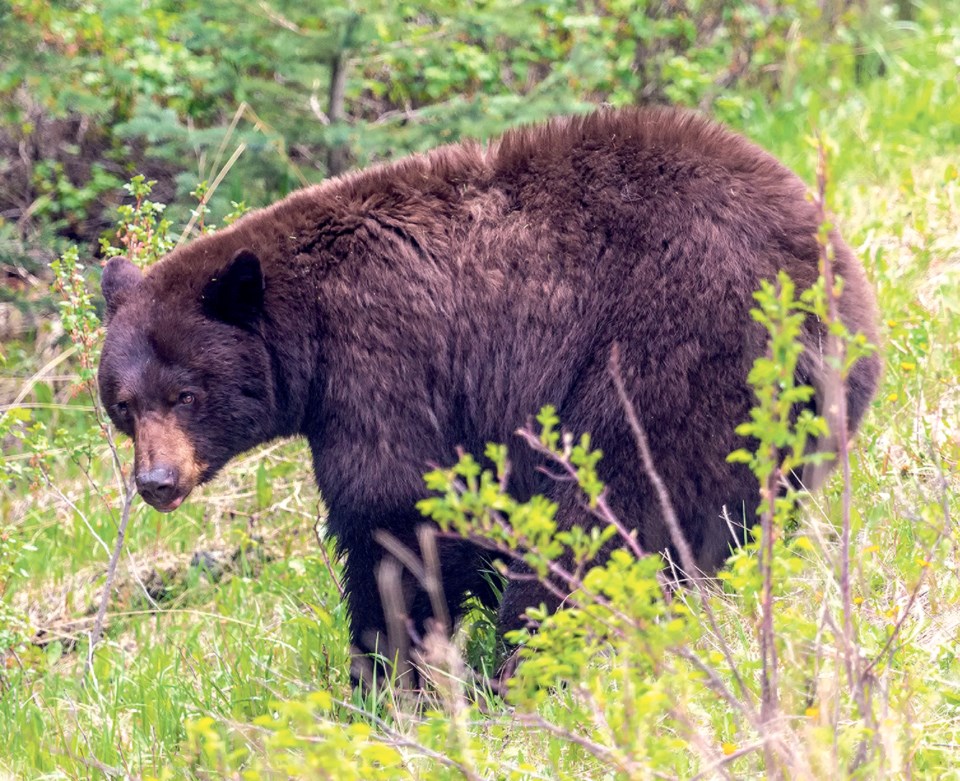BANFF – A black bear appears to have gotten a taste for human food, prompting Parks Canada to capture and collar the bruin to keep track of its whereabouts.
Officials say the black bear, which has shown behaviours consistent with being fed human food, approached a group of Parks Canada staff while they were eating lunch at a picnic table at the Coleman day-use area along Highway 93 North in Banff National Park on Oct. 10.
“The bear would not leave the area despite significant attempts to scare it away. It is not believed the bear obtained any human food during this encounter,” said James Eastham, a spokesperson for Lake Louise, Yoho and Kootenay field unit, in an email.
“The same bear was later reported attempting to access the day-use area outhouse.”
Human-wildlife coexistence specialists successfully trapped and collared the bear on Oct. 11.
The GPS collar will allow staff to monitor the location of the bear in near-real time and take management actions as necessary, including aversive conditioning.
Aversive conditioning typically includes shouting, clapping, firing bear bangers at bears, and generally creating sounds and experiences to scare away the bear and to make areas of high-human use unpleasant for wildlife.
Eastham said wildlife management staff patrolled the area throughout the day on Oct. 12, prepared to conduct aversive conditioning techniques on the bear if it approached picnic areas.
“However, the bear was not seen in the day-use area or along the roadside,” he said.
“Observations and monitoring will continue to determine the next management steps for this bear.”
The Coleman day-use area is closed until further notice and a bear warning remains in place for the surrounding areas.
Eastham said national park visitors share the surrounding habitat with wildlife, adding they have a responsibility to behave in ways that ensure human safety and the animal’s well-being. “Human food kills wildlife,” he said.
“Parks Canada staff respond to hundreds of human-wildlife incidents each year that involve unsecured human food or garbage.”
Eastham said Parks Canada needs the support of all visitors to ensure wildlife does not access food rewards.
“This means not littering, not feeding wildlife, making sure all garbage is placed in bear proof bins and obeying camping regulations by only camping in designated areas and keeping campsites clean at all times,” he said.




